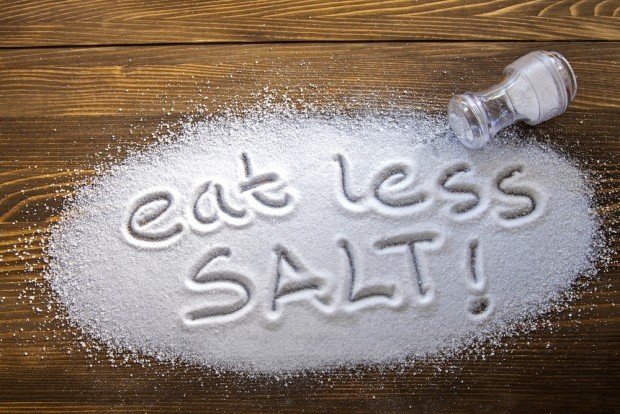High blood pressure is a global problem. In fact, in 2021, it was the most searched term for a health condition on Google. Unfortunately, the condition can severely compromise the quality of your life and longevity. Here are eight important triggers that you must know about so you can better manage your risk.
Why do you get high blood pressure?
High blood pressure usually develops over time. It usually occurs as a result of unhealthy lifestyle choices, such as not getting enough regular physical activity and eating unhealthy food. Certain health conditions, such as diabetes and obesity, can also increase the risk of developing high blood pressure. High blood pressure can also happen during pregnancy. Additionally, it can be triggered by a genetic predisposition to the disease.
According to the CDC, “High blood pressure usually has no warning signs or symptoms, and many people don’t even know they have it. Measuring your blood pressure is the only way to know whether you have high blood pressure.”
The silent killer
High blood pressure is called the “silent killer” because it usually has no warning signs or symptoms. The problem is that it can seriously hurt important organs like your heart, brain, kidneys, and eyes.
Both men and women can have high blood pressure. Some other characteristics that you cannot control—such as your age, race, or ethnicity—can also affect your risk for high blood pressure.
- Age. Because your blood pressure tends to rise as you get older, your risk for high blood pressure increases with age. About 9 out of 10 Americans will develop high blood pressure during their lifetime.2
- Sex. Women are about as likely as men to develop high blood pressure at some point during their lives.
- Race or ethnicity: Black people develop high blood pressure more often than white people, Hispanics, Asians, Pacific Islanders, American Indians, or Alaska Natives do. Compared with white people, black people also develop high blood pressure earlier in life.3
The Mayo Clinic adds, “High blood pressure (hypertension) is a common condition in which the long-term force of the blood against your artery walls is high enough that it may eventually cause health problems, such as heart disease.”
The good news is that, in most cases, you can proactively manage your blood pressure to lower your risk for serious health problems.
How does it work?
According to the Mayo Clinic, “blood pressure is determined by the amount of blood your heart pumps and the amount of resistance to blood flow in your arteries. The more blood your heart pumps and the narrower your arteries, the higher your blood pressure. A blood pressure reading is given in millimeters of mercury (mm Hg). It has two numbers.
- The top number (Systolic pressure). The first, or upper, number measures the pressure in your arteries when your heartbeats.
- The bottom number (Diastolic pressure). The second, or lower, number measures the pressure in your arteries between beats.”
You can have high blood pressure for years without any symptoms. Uncontrolled high blood pressure increases your risk of serious health problems, including heart attack and stroke.
Fortunately, high blood pressure can be easily detected. And once you know you have high blood pressure, you can work with your doctor to control it – Mayo Clinic

ruigsantos/shutterstock
8 Factors That Will Trigger High Blood Pressure
If you want to avoid high blood pressure or manage it, then you must keep these triggers top of mind.
1. Your BMI
Your BMI will play a critical role in your propensity for and management of high blood pressure.
- BMI is a measure of body fat based on height and weight. Did you know that 75% of hypertension diagnoses are directly due to obesity? So it makes sense that if you are managing your BMI, this will help you manage your weight.
What is considered a healthy BMI?
Specialists recommend a BMI reading between 18.5 and 24.9 is considered healthy. A reading of 25 and 29.9 means the person is likely overweight, and a reading above 30 signals obesity.
How do you manage BMI?
- Exercise regularly
- Exercise is medicine. Several studies have shown that if you exercise regularly you will generally be healthier. This is true for managing high blood pressure
- Did you know that just 150 minutes of exercise every week can reduce high blood pressure by about 5 to 8 mmHg?
Make it interesting
For many, exercise is a lesser-loved chore. However, if you find an activity that you love, you can change this perception. Try new classes out at the gym, consider taking up an active hobby, and apply your mind to household chores daily, such as mowing the lawn or gardening. And of course, walking 15-30 minutes a day outdoors is going to improve your mood, health, and blood pressure.
Weight-bearing exercises are very good for you if you have high blood pressure. You can either purchase weights online and take a tutorial from an expert or go to the gym and get some guidance there. Weight-bearing training is also excellent as you age, for longevity.
2. Obesity
Having obesity or being overweight means you are carrying excess fat around. It also means your heart must work harder to pump blood and oxygen around your body. Over time, this can add stress to your heart and blood vessels.
Obesity is linked to higher “bad” cholesterol and triglyceride levels and to lower “good” cholesterol levels. In addition to high blood pressure, obesity can also lead to heart disease and diabetes. Talk to your health care team about a plan to reduce your weight to a healthy level.
3. Diabetes
About 6 out of 10 people with diabetes also have high blood pressure. Diabetes causes sugars to build up in the blood and also increases the risk for heart disease.
Talk with your physician about ways to manage diabetes and control other risk factors.
4. Unhealthy Diet
Your lifestyle choices can increase your risk for high blood pressure. A diet that is too high in sodium and too low in potassium puts you at risk for high blood pressure.
Eating too much sodium—an element in table salt—increases blood pressure. Most of the sodium we eat comes from processed and restaurant foods. Learn more about sodium and high blood pressure.
Not eating enough potassium—a mineral that your body needs to work properly—also can increase blood pressure. Potassium is found in many foods; bananas, potatoes, beans, and yogurt have high levels of potassium.
There is so much noise out there around diets. However, when it comes to high blood pressure, it’s important not to adopt a diet that will make your problem worse, even if it does help you lose some weight. Balancing out nutrients and salt intake when you have high blood pressure is critical.

Hriana/Shutterstock
The key is to moderate those factors in food that will accelerate your blood pressure.
What diet is best?
Research shows that the DASH diet is the best diet to manage hypertension. The DASH diet is a style of eating recommended to manage hypertension. The diet has been found to effectively lower blood pressure.
The DASH diet lowering blood pressure was linked to a 27% less stroke rate and a 15% less heart disease rate. The diet encourages the consumption of vegetables, fruits, whole grains, and low-fat dairy foods.
5. Physical Inactivity
Getting regular physical activity helps your heart and blood vessels stay strong and healthy, which may help lower your blood pressure. Regular physical activity can also help you keep a healthy weight, which may also help lower your blood pressure.
6. Too Much Alcohol
Drinking too much alcohol can raise your blood pressure.
- Women should have no more than one drink a day.
- Men should have no more than two drinks a day.
We know from all the research that drinking eight or more alcoholic beverages a week may increase the risk of high blood pressure (also called hypertension) among adults with Type 2 diabetes. New research published in the Journal of the American Heart Association, an open access journal of the American Heart Association, confirms this!
“This is the first large study to specifically investigate the association between alcohol intake and hypertension among adults with Type 2 diabetes,” said senior study author Matthew J. Singleton, M.D., M.B.E., M.H.S., M.Sc., a chief electrophysiology fellow at Wake Forest University School of Medicine in Winston-Salem, North Carolina.
“Previous studies have suggested that heavy alcohol consumption was associated with high blood pressure, however, the association of moderate alcohol consumption with high blood pressure was unclear.”
The relationship between alcohol and high blood pressure
The researchers examined the relationship between alcohol consumption and blood pressure in more than 10,000 adults with Type 2 diabetes (average age 63, 61% male). All were participants in the Action to Control Cardiovascular Risk in Diabetes (ACCORD) trial, one of the largest, long-term trials to compare different treatment approaches to reduce heart disease risk in adults with Type 2 diabetes, conducted from 2001-2005 at 77 centers across the U.S. and Canada.
 All participants had Type 2 diabetes for an average of 10 years prior to enrolling in the study. In addition to 10 years with Type 2 diabetes, they were at increased risk for cardiovascular events because they had the pre-existing cardiovascular disease; evidence of potential cardiovascular disease; or had at least two additional cardiovascular disease risk factors (such as high blood pressure, high cholesterol, smoking, or obesity).
All participants had Type 2 diabetes for an average of 10 years prior to enrolling in the study. In addition to 10 years with Type 2 diabetes, they were at increased risk for cardiovascular events because they had the pre-existing cardiovascular disease; evidence of potential cardiovascular disease; or had at least two additional cardiovascular disease risk factors (such as high blood pressure, high cholesterol, smoking, or obesity).
In this study, alcohol consumption was categorized as none; light (1-7 drinks per week); moderate (8-14 drinks per week); and heavy (15 or more drinks per week). One alcoholic beverage was equivalent to a 12-ounce beer, 5-ounce glass of wine, and 1.5 ounces of hard liquor. The number of drinks per week was self-reported by each participant via a questionnaire when they enrolled in the study.
Researchers found:
- light drinking was not associated with elevated blood pressure or either stage of high blood pressure;
- Moderate drinking was associated with increased odds of elevated blood pressure by 79%; Stage 1 high blood pressure by 66%; and Stage 2 high blood pressure by 62%;
- heavy drinking was associated with increased odds of elevated blood pressure by 91%; Stage 1 high blood pressure by 149% (a 2.49-fold increase); and Stage 2 high blood pressure by 204% (a 3.04-fold increase); and
- the more alcohol consumed, the higher the risk and severity of high blood pressure.
No escaping this… Drinking alcohol can make your blood pressure go up. In fact 8 or more drinks of alcohol a week is associated with a 60% or higher increased risk of high blood pressure.
How much should you drink?
- Research shows that heavy drinkers who cut back on moderate drinking can lower their blood pressure.
- Moderate drinking for women is a drink a day and up to two drinks for men.
According to the American Heart Association, excessive drinking can increase the risk of high blood pressure, and people with Type 2 diabetes are already at increased risk for high blood pressure. For the general population, the association recommends alcoholic beverages be consumed in moderation, if at all, and drinkers should understand the potential effects on their health.
7. Tobacco Use
Tobacco use increases your risk of high blood pressure. Smoking can damage the heart and blood vessels. Nicotine raises it and breathing in carbon monoxide—which is produced from smoking tobacco—reduces the amount of oxygen that your blood can carry.
8. Genetics and Family History
Family members share genes, behaviors, lifestyles, and environments that can influence their health and their risk for disease. High blood pressure can run in a family, and your risk for high blood pressure can increase based on your age and your race or ethnicity.
Genes likely play some role in high blood pressure, heart disease, and other related conditions. However, it is also likely that people with a family history of high blood pressure share common environments and other potential factors that increase their risk.
Family health history is a record of the diseases and health conditions people in your family have had. Family health history is a useful tool for understanding health risks and preventing disease.
This is helpful! To help people collect and organize information on their family history, CDC’s Office of Public Health Genomics collaborated with the Surgeon General and other federal agencies to develop a web-based tool called My Family Health Portrait.
In closing
High blood pressure will significantly reduce your quality of life if it is left unmanaged. Importantly, you can take active steps to help manage this condition. In doing so you will get healthier and your overall wellness and longevity will improve.
IMPORTANT NOTE: If you are on medication, please consult your physician. This article does not recommend that you remove or substitute any of the above activities.
Main photo credit: ANTONI SHKRABA:





![women [longevity live]](https://longevitylive.com/wp-content/uploads/2020/01/photo-of-women-walking-down-the-street-1116984-100x100.jpg)









